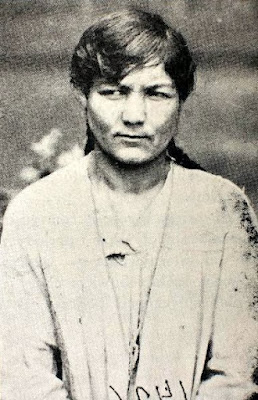THESE PEOPLE MUST BE STOPPED. ANYONE THAT SIDES WITH THIS ABUSIVE POLICY SHOULD GIVE ME A WIDE BERTH. TRUMP DID NOT INHERIT THIS FROM OBAMA
THESE PEOPLE MUST BE STOPPED. ANYONE THAT SIDES WITH THIS ABUSIVE POLICY SHOULD GIVE ME A WIDE BERTH.
TRUMP DID NOT INHERIT THIS FROM OBAMA,
Morning Mix
Detained migrant children got no toothbrush, no soap, no sleep. It’s no problem, government argues.
Add to list
Children rest on the floor beneath aluminum-foil blankets at a U.S. Customs and Border Protection detention facility in McAllen, Tex., on June 17, 2018. (U.S. Customs and Border Protection's Rio Grande Valley Sector via AP) (CBP/(U.S. Customs and Border Protection's Rio Grande Valley Sector via AP))
By Meagan Flynn June 21
The government went to federal court this week to argue that it shouldn’t be required to give detained migrant children toothbrushes, soap, towels, showers or even half a night’s sleep inside Border Patrol detention facilities.
The position bewildered a panel of three judges in the U.S. Court of Appeals for the 9th Circuit on Tuesday, who questioned whether government lawyers sincerely believed they could describe the temporary detention facilities as “safe and sanitary” if children weren’t provided adequate toiletries and sleeping conditions. One circuit judge said it struck him as “inconceivable."
“To me it’s more like it’s within everybody’s common understanding: If you don’t have a toothbrush, if you don’t have soap, if you don’t have a blanket, it’s not safe and sanitary,” Senior U.S. Circuit Judge A. Wallace Tashima told Justice Department lawyer Sarah Fabian. “Wouldn’t everybody agree to that? Would you agree to that?”
Fabian said she thought it was fair to say “those things may be” part of the definition of safe and sanitary.
“What are you saying, ‘may be?’” Tashima shot back. “You mean, there’s circumstances when a person doesn’t need to have a toothbrush, toothpaste and soap? For days?”
The government was in court to appeal a 2017 ruling finding that child migrants and their parents were detained in dirty, crowded, bitingly cold conditions inside U.S. Customs and Border Protection facilities along the southern border. Migrants are first taken to those facilities after they are apprehended at the border.
But although the conditions that were the subject of the 2017 ruling date back to the Obama administration, the testy court exchange comes as the Trump administration confronts an unprecedented migrant surge that has overwhelmed facilities and caused serious health and safety risks within them. At least six child migrants have died since September, mostly after falling ill at detention facilities in the Rio Grande Valley. In this case, the Trump administration has continued to fight the 2017 ruling that sought to remedy deplorable conditions within these same facilities, at times blaming Congress for not providing enough resources to address the crisis.
U.S. District Judge Dolly Gee had found that migrants in Rio Grande Valley facilities were hungry, with some eating only “sandwiches of two pieces of dry bread and one slice of ham.” They were thirsty, with up to 20 migrants sharing the same cup to drink from the water cooler. They were embarrassed to use a toilet in front of 50 other people and they couldn’t take a shower or brush their teeth or even wash their hands with soap and dry them with a towel, the judge found. At night, they couldn’t sleep. The lights were left on, as they shivered beneath an aluminum blanket on the concrete floor, the judge found.
Gee ruled in June 2017 that these Obama-era conditions violated a 1997 settlement agreement requiring that immigrant children in the government’s custody be housed in “safe and sanitary” conditions, and that the government maintain “concern for the particular vulnerability of minors.”
But the Trump administration protested. The 1997 consent decree, known as the Flores Settlement Agreement, didn’t say anything about providing a “toothbrush,” “towels,” “dry clothing,” “soap,” or even “sleep,” the administration has argued.
Therefore, the government now reasons, they shouldn’t be found in violation of the “safe and sanitary” requirement for not providing those necessities.
Fabian did not get the first word as she prepared to make this portion of her argument on Tuesday. Before she began, U.S. Circuit Judge Marsha Berzon appeared concerned that Fabian may be wasting the judges’ time.
“Are you really going to stand up and tell us that being able to sleep isn’t a question of safe and sanitary conditions?” Berzon asked.
Fabian said she wanted to focus on the “language” in the settlement agreement, arguing that the judge was wrong to order the government to provide items not specifically named in the binding law. The worry was that “any number of things” might fall within the category of “safe and sanitary,” Fabian said. Essentially, how was the government supposed to know when it was in violation of such vague terms?
Perhaps it is “relatively obvious,” offered U.S. Circuit Judge William Fletcher.
“And [it’s] at least obvious enough so that if you’re putting people into a crowded room to sleep on a concrete floor with an aluminum foil blanket on top of them, that doesn’t comply with the agreement,” he said. “I mean, it may be that they don’t get super-thread-count Egyptian linens. I get that. But the testimony that the district court believed was, it’s really cold — in fact, it gets colder when we complain about it being cold. We’re forced to sleep crowded with the lights on all night long.”
“No one would argue that this is safe and sanitary,” he said. “Or at least I don’t think that you’re arguing that. Are you?”
Fabian conceded that arguing about proper sleeping conditions was the most complex side of her argument. So Berzon asked, “What is your strongest argument then?”
Fabian turned to the problem of “enumerating certain hygiene items.”
“Again,” Fletcher said. “It wasn’t perfume soap. It was soap. It wasn’t high-class milled soap. It was soap. And that sounds like it [falls in the category] of safe and sanitary. Are you disagreeing with that?”
On it went, before Fletcher agreed with Tashima’s interpretation of her argument that the government thinks “safe and sanitary” is “so vague that it’s almost unenforceable.”
Neither Fabian nor the judges addressed whether the government thinks conditions have improved at its Rio Grande Valley detention facilities since the 2017 ruling. But recent reports, as well as admissions by administration officials, suggest conditions haven’t improved as the immigration system is stretched at its seams.
Acting Homeland Security secretary Kevin McAleenan testified at a Senate Judiciary Hearing last week, described conditions as “inappropriate,” and said the vast majority of migrants apprehended at the border are children and families.
Last month, in the largest temporary detention center in McAllen, Tex., CBP had to quarantine 32 migrants who were diagnosed with the flu, soon after a 16-year-old boy from Guatemala died. He had been diagnosed with the flu at the same overcrowded facility, where dozens of migrants are held behind chain-link fences in pens, sleeping on the concrete floor with aluminum-foil blankets.
[Three dozen migrants with flu virus quarantined at Texas processing facility]
Elsewhere, conditions are still bad. A recent internal DHS report found “egregious violations of detention standards” at facilities in Adelanto, Calif., and Essex County, N.J. The violations included expired food, nooses found in cells and bathrooms that were “dilapidated and moldy.”
“At one facility, detainees were not provided appropriate clothing and hygiene items to ensure they could properly care for themselves,” DHS’s Office of the Inspector General wrote in the inspection report.
At Tuesday’s hearing, the plaintiffs’ attorney, Peter Schey, offered definitions from Webster’s dictionary to aid judges in assessing the government’s arguments about whether certain hygiene products fell under “safe and sanitary.”
Schey said, “Certainly the Border Patrol facilities are secure. But they’re not safe, and they’re not sanitary.”
More from Morning Mix:
She wrote her dissertation on unusual names instead of changing hers. Now you can call her Dr. Marijuana Pepsi.
’We need to step back from the brink of war’: Democrats urge restraint after Trump cancels Iran strike
He was convicted of molesting an 11-year-old girl he met on a dating app. He won’t face jail time.
932 Comments
Fact Checker newsletter
Count the pinocchios: A weekly review of what's true, false or in-between in politics, from The Post's famous fact-checking team.
By signing up you agree to our Terms of Use and Privacy Policy
Meagan Flynn
Meagan Flynn is a reporter on The Washington Post's Morning Mix team. She was previously a reporter at the Houston Chronicle and the Houston Press. Follow
PAID PROMOTED STORIES
Drivers With No Tickets In 3 Years Are Surprised By This Little-Known Tip
Drivers With No Tickets In 3 Years Are Surprised By This Little-Known Tip
www.the-finance-news.com
[Photos] Firemen Thought They Were Saving Tiny Puppies. When They Realized They Weren't Dogs, They Did This
[Photos] Firemen Thought They Were Saving Tiny Puppies. When They Realized They Weren't Dogs, They Did This
The Primary Market
[Photos] Dubai Photos That Will Make You Think Twice
[Photos] Dubai Photos That Will Make You Think Twice
Coolimba
The Facial That Celebrities Say ‚Takes 10 Years Off Your Face
The Facial That Celebrities Say ‚Takes 10 Years Off Your Face
Town & Country
Meet the Sneaker Brand Set to Disrupt the Fashion Industry
Meet the Sneaker Brand Set to Disrupt the Fashion Industry
Vogue
Identifying sensitive skin triggers
Identifying sensitive skin triggers
Healthgrades
Recommended by
Most Read National
1
‘This is a nightmare’: A woman fell asleep mid-flight and woke up trapped in a dark plane alone
2
Conditions at migrant detention centers are ‘horrendous.’ Trump, Pence blame Democrats.
3
House Democrats propose offering 2 million immigrants the chance to apply for U.S. citizenship
4
Trump signs executive order to compel disclosure of health-care prices
5
A mother played a game of chicken with her kids. She killed her 3-year-old son, police say.
Opinion
Mike Pence just revealed something important about Trump’s Iran decisions
Opinion
Trump’s lies need to be exposed in real time
Latest episode
Joe Biden vs. the rest of the Democratic field
Listen22:28
Unparalleled reporting. Expert insight. Clear analysis. Everything you’ve come to expect from the newsroom of The Post -- for your ears.
Must Reads newsletter
Get five of our best stories in your inbox every Saturday, plus a peek behind the scenes into how one came together.
washingtonpost.com
© 1996-2019 The Washington Post
Help
Policies and Standards
Terms of Service
Privacy Policy
Print Products Terms of Sale
Digital Products Terms of Sale
Submissions and Discussion Policy
RSS Terms of Service
Ad Choices
Contact Us












Comments
Post a Comment